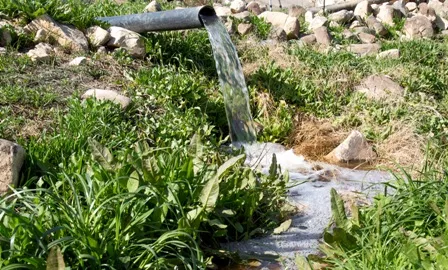How non-conventional water resources can contribute to water, food security
22 March 2016
Water scarcity is forecast to increase even without the impact of climate change. With the growing global population and industrialization, the amount of available water per person is declining worldwide, but especially in marginal regions. Increased risks and uncertainties of water availability due to prolonged droughts and declining precipitation are creating additional challenges for producing more food.
Water scarcity, low fertility and excessive salinity constrain agricultural development in marginal environments. Climate change is adding to the problem. These challenges have a direct impact on agriculture, food and nutrition security. Farming requires more effort and input and return on investment is often low or negative. As a result, some farmers leave their lands and migrate.
Celebrated on March 22, the World Water Day 2016 will draw global attention to the issues facing communities and the central role of water in creating and supporting jobs.
Working in marginal environments where water is scarce, the International Center for Biosaline Agriculture (ICBA) and its partners know the true value and potential of water for rural livelihoods.
Sustainable management of water in agriculture is critical to increasing agricultural production. Efforts are needed to ensure water can be shared with other users and maintain the environmental and social benefits of water systems.
As freshwater is getting ever scarcer, ICBA carries out research into the effective use of non-conventional water resources such as saline water, treated wastewater, industrial water, produced water from mining, brine from desalination units, agricultural drainage water and seawater. ICBA has been testing an Integrated Aqua-Agriculture System (IAAS), which uses desalinated and brine water turning waste into a resource with benefits for the environment and farmers. Researchers are also working on near-real time monitoring technology for irrigated agriculture in the Middle East and North Africa countries. This technology monitors crops and their environments and is an effective tool to improve on-farm irrigation management. It will help to improve water conservation and crop water productivity at the farm level. Through a project on adaptation to climate change in marginal environments of the West Asia and North Africa region, ICBA is working to save scarce freshwater resources by introducing resilient forage and crop production and management systems suitable for use by small-scale farmers. ICBA’s program on biofuel crops is focused on seawater-based agricultural systems - integrating marine and terrestrial culture systems for optimizing farm livelihoods. Seawater agriculture - cultivating micro- and macroalgae for biomass and energy production with seawater - with particular emphasis on potential biofuel feedstock is also explored. In partnership with the private sector, ICBA has developed a subsurface irrigation pipe technology that simultaneously desalinates saline or brackish water and irrigates crops by releasing non-saline water vapor (pervaporation). Scientists are also measuring the actual sap flow in date palms (transpiration) as a function of hourly evapotranspiration. This will enable operators to determine the amount of water required by this major crop compared with the amount actually applied, helping them to develop improved irrigation guidelines that will generate considerable water saving.
Working in marginal environments where water is scarce, the International Center for Biosaline Agriculture (ICBA) and its partners know the true value and potential of water for rural livelihoods.
Sustainable management of water in agriculture is critical to increasing agricultural production. Efforts are needed to ensure water can be shared with other users and maintain the environmental and social benefits of water systems.
As freshwater is getting ever scarcer, ICBA carries out research into the effective use of non-conventional water resources such as saline water, treated wastewater, industrial water, produced water from mining, brine from desalination units, agricultural drainage water and seawater. ICBA has been testing an Integrated Aqua-Agriculture System (IAAS), which uses desalinated and brine water turning waste into a resource with benefits for the environment and farmers. Researchers are also working on near-real time monitoring technology for irrigated agriculture in the Middle East and North Africa countries. This technology monitors crops and their environments and is an effective tool to improve on-farm irrigation management. It will help to improve water conservation and crop water productivity at the farm level. Through a project on adaptation to climate change in marginal environments of the West Asia and North Africa region, ICBA is working to save scarce freshwater resources by introducing resilient forage and crop production and management systems suitable for use by small-scale farmers. ICBA’s program on biofuel crops is focused on seawater-based agricultural systems - integrating marine and terrestrial culture systems for optimizing farm livelihoods. Seawater agriculture - cultivating micro- and macroalgae for biomass and energy production with seawater - with particular emphasis on potential biofuel feedstock is also explored. In partnership with the private sector, ICBA has developed a subsurface irrigation pipe technology that simultaneously desalinates saline or brackish water and irrigates crops by releasing non-saline water vapor (pervaporation). Scientists are also measuring the actual sap flow in date palms (transpiration) as a function of hourly evapotranspiration. This will enable operators to determine the amount of water required by this major crop compared with the amount actually applied, helping them to develop improved irrigation guidelines that will generate considerable water saving.











